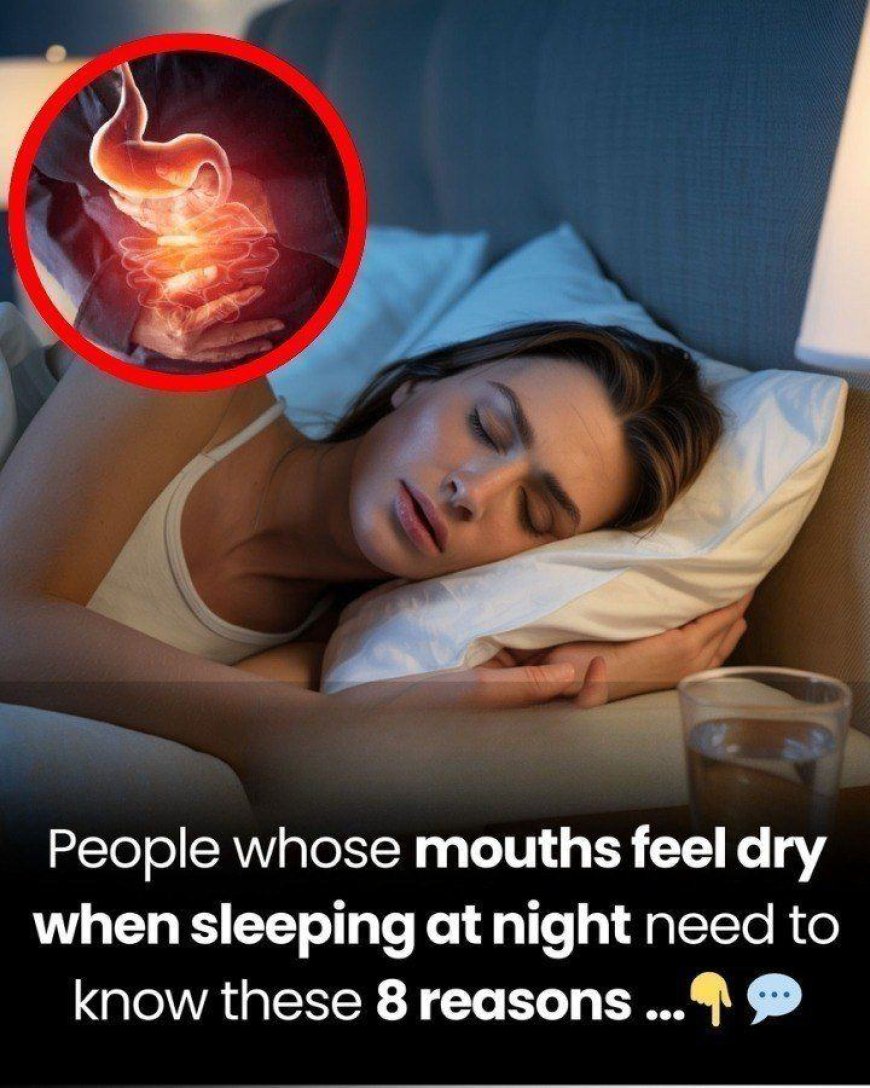People whose mouths feel dry when sleeping at night need to know these 8 reasons
Waking up in the middle of the night or early morning with a parched, sticky mouth is a surprisingly common issue, yet it often goes unnoticed or dismissed as trivial. However, persistent dryness during sleep is more than just a minor discomfort—it can signal deeper imbalances in the body or lifestyle habits that need attention. When the mouth doesn’t produce enough saliva during the night, several problems can occur: the tissues of the mouth and throat become irritated, the risk of bad breath and dental decay increases, and overall sleep quality declines. Many people assume this happens simply because they “forgot to drink enough water,” but the truth is often more complex. Factors such as stress, dietary choices, hormonal changes, and even certain medications or illnesses can all contribute to nighttime dryness.
2.
Saliva plays a vital role in maintaining oral health. It helps neutralize acids, wash away bacteria, and keep tissues hydrated. When saliva production drops significantly while you sleep, your body’s natural defense system weakens. Over time, this can lead to chronic issues like sore throats, gum problems, or an uncomfortable burning sensation upon waking.
Understanding the root cause of dry mouth at night is crucial to addressing it effectively. Whether it’s linked to digestive issues, dehydration, or a more serious condition like diabetes or thyroid imbalance, recognizing the early signs allows for better management and prevention.
People whose mouths feel dry when sleeping at night need to know these 8 reasons
In today’s fast-paced world, stress has become a constant in many people’s lives. This ongoing pressure can disrupt sleep and overall well-being. One particular issue that affects restful sleep is waking up with a dry mouth at night.
While it might seem like a minor inconvenience, experiencing it frequently can be quite uncomfortable and may indicate an underlying health issue.
This condition tends to occur more often in the second half of the night and could stem from a variety of causes. Below are eight common factors that may contribute to dry mouth while sleeping.
1. Digestive Issues
Eating certain types of food before bed—especially greasy, spicy, or salty foods—can irritate the digestive system. These foods absorb water and increase fat and blood pressure levels, which disrupt digestion during the night.
As your body continues to digest the food while you sleep, it pulls water from your system, leading to a dry sensation in your mouth.
Best restaurants near me
Mouthwash
2. Liver Problems
The liver plays a vital role in filtering toxins from the body. When it is inflamed or not functioning properly, toxins can build up in the system.
For illustrative purpose only
Digestive health supplements
Sleep meditation app
One subtle sign of liver damage is persistent dry mouth during sleep. If this occurs frequently and without an obvious cause, it’s important to seek medical evaluation to check your liver health.
3. Dehydration
A very common cause of nighttime dry mouth is simply not drinking enough water during the day. Even while sleeping, your body uses and loses water through breathing and other basic functions.
When your hydration levels are too low, your mouth can become dry. To prevent this, drink water consistently throughout the day.
Conditions such as gingivitis, periodontitis, or general poor oral hygiene can increase the presence of harmful bacteria in the mouth. These bacteria can multiply overnight, leading to inflammation and dryness.
Regular brushing, flossing, and dental checkups are essential in preventing oral infections that may cause dry mouth.
5. Diabetes
People with diabetes often experience dry mouth, especially at night. High blood sugar levels cause the kidneys to work harder to eliminate excess sugar through urine, which leads to fluid loss and dehydration.
For illustrative purpose only
As a result, the mouth may feel unusually dry while sleeping.
6. Bile Reflux
When bile flows back into the stomach due to poor liver function, it can cause indigestion and disrupt sleep.
Bile reflux may lead to a dry mouth during the night and other digestive discomforts. Managing liver health is important in addressing this condition.
7.
Fever
T.ap the p.hoto to v.iew the full r.ecipe.


























